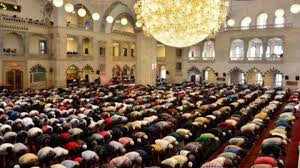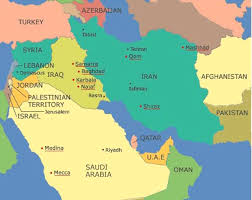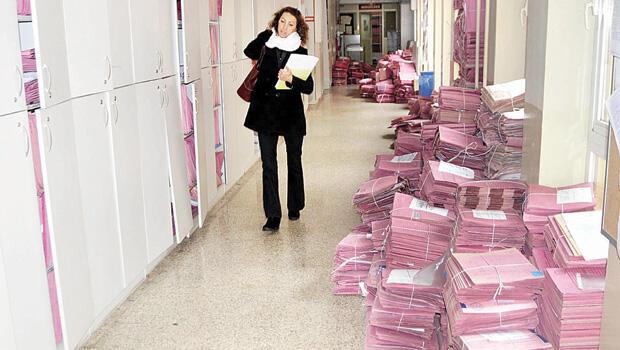türkçe links to original Turkish article
(HaberTürk Newspaper, 28 January 2016)
 One direction.
One direction.
The matter of the wrong-way kıble ('qibla' - angle facing Mecca
in mosques) has come up twice in just the past week. When
President Recep Tayyip Erdoğan was at the funeral for Lt. Uğur
Taşçı, who was martyred in Cizre in southeast Turkey, he noticed
that the kıble was wrong and alerted the imam. It also came out
that the kıble angle in the Kakaç mosque in Kütahya was 69
degrees off.
Meanwhile, the 2016 budget for the Religious Affairs Ministry
has been accepted by the Parliamentary Plan and Budget Committee.
A section of the budget is related to kıble work and according to the
draft text, almost 86,000 mosques in Turkey will have their kıble
angles checked anew.
The Religious Affairs Ministry will also provide training to personnel
in every province to ensure that the kıble angles are true in all newly
constructed mosques. Electronic systems will be installed on
Karakaya Hill in Erzurum for continuous observations of the horizon.
 When in doubt...
When in doubt...
Religious Affairs officials stated that training in kıble determination,
namaz (prayer) times overseas and crescent moon observations will
be provided to personal heading to overseas assignments by
astronomers. The officials noted that "we have personnel in Africa,
America, Europe and Australia. We want the calculations that we
make to conform with the observations that our personnel make."
The Religious Affairs Ministry will arrange a congress in Istanbul
in 2016 under the name "hicri calendar unification" (the hicri or
Muslim calendar is based on the year 622 A.D., the year of the
hegira - Muhammed's journey from Mecca to Medina). 'Fıkıh'
(Muslim canonical jurisprudence) scholars and astronomers from
Europe, Africa and America will be invited to the congress. The
aim of the congress will be to formulate a common hicri calendar
for all Muslims.
Theologist Abdülaziz Bayındır noted that people living in Turkey
must turn south for the kıble but that "it doesn't have to be absolute
Mecca. It can be southeast or southwest...so it doesn't affect the
prayers. Even if the mosque doesn't face south there's no problem
with the prayers. Those who pray must only think (!) that the kıble
angle is true. Even if they're 100% backwards they can pray with
no problem if they think they're facing the kıble angle."






